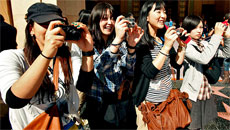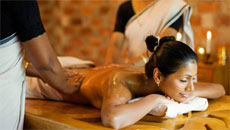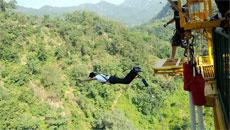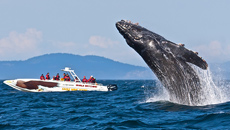Look to the light to avoid the lag when travelling across time zones
Whether you’ve flown across the country once or you’re in the air on a regular basis, chances are you’ve arrived at your destination feeling less than your best. Groggy, disoriented and struggling with digestion, you’re feeling jet lagged and the last thing you want after hours of travel is to lose more time to its ill effects.
Jet lag, one of the most common sleep disorders, results from rapid travel across two or more time zones. While once believed to be all in one’s head, research has now shown that cross-time zone travel disrupts our body’s internal clock, or our circadian rhythm.
These natural rhythms, which are regulated by mealtimes, body temperature variations, social engagement, and hormone regulation, respond primarily to light and darkness and control when we sleep, when we eat, and when we wake. When our internal clock is out of sync with the external time – when we experience daylight or darkness, and in turn, meals and activities, contrary to when our body has grown accustomed to – we suffer from jet lag.
Frequent fliers are all too aware of the negative effects jet lag can have on their ability to function properly once they arrive at their destination. Travellers will often experience difficulty sleeping despite daytime fatigue, an inability to concentrate or complete daily tasks, and indigestion, constipation or a rejection of food.

The effects are generally worse when travelling from west to east and time is ‘lost’. It becomes difficult to expose yourself to daylight, eat at proper meal times, and fall asleep at an appropriate hour when your body has missed its natural cues.
Symptoms of jet lag may last for several days, with up to a day of recovery necessary for each time zone crossed, but its effect can also depend on individual factors with everyone reacting differently to new environments and sleep schedules.
“People have internal circadian rhythms of different lengths. Some people are ‘early birds’ and are alert earlier in the day – they can travel time zones east easier than others,” explains Jay Olson, psychiatry graduate student and researcher at McGill University, who studied jet lag and devised a system to prevent it. “Other people are ‘night owls’ and are alert later at night – they can travel time zones west easier than others.”

Your ability to adjust may also depend on your age, gender and general health. “Older people and those who are less healthy often have more trouble adjusting to new time zones,” says Olson.
Fortunately, if you find yourself spending lots of time in the friendly skies, research has shown there are proven methods to managing jet lag.
“Timed light exposure is the most well-researched jet lag reduction method,” says Olson. By exposing yourself to bright light, or sunlight, at certain times, depending on when you depart, how many time zones you cross, and when you usually wake and sleep, can minimize or eliminate the effects of jet lag. Seeking and avoiding light at the right times can help synchronize your circadian rhythms with your surroundings; bright light exposure causes what is known as a ‘phase shift’ or a delay or advancement in your circadian rhythms.
“If you shift your sleep patterns before you fly, you experience less jet lag once you land,” says Olson. “If you shift them afterwards, you have to cope with more jet lag initially. Personally, I usually shift some before and some after.”
While it may seem as simple as avoiding light during the night and seeking it during the day, the necessary exposure to light might not correspond with the daylight at your destination, so careful control both before and after will allow for the quickest recovery. Online programs, such as the one designed by Olson, create customized programs that help shift circadian rhythms.

The right times to avoid and seek out light will differ for each person and each trip. To eliminate any unwanted fatigue after flying, take the time before you depart to figure out the appropriate timing for your individual light exposure and avoidance.
Aside from timed-light exposure, Olson also adds that “many travellers benefit from reducing travel fatigue,” which he explains feels similar but is separate from jet lag. “Drink a lot of water, eat fruit, and take a shower after arriving,” he suggests.
Setting yourself up for a proper sleep will help lessen the fatigue of flying across time zones. Avoid alcohol, caffeine, heavy foods, or strenuous activities too close to bedtime at your destination. Chances are you’ll be sleeping in an unfamiliar environment once you arrive, which could negatively affect your ability to fall asleep; ensure you’re prepared for the noise, temperature or comfort variations at your destination. While these factors don’t specifically treat jet lag, they will affect your sleep quality and, in turn, how easily you recover from your flight fatigue.
Cross-time zone travel doesn’t need to be tiring. Pack your suitcase, plan your itinerary and include jet lag as an important part of your trip preparations to ensure you’re ready to take flight and focus on what’s waiting when you land.






